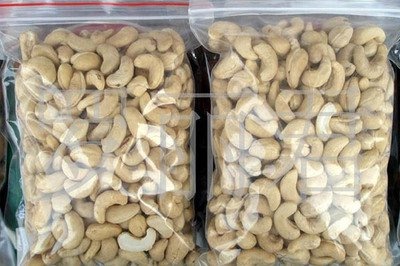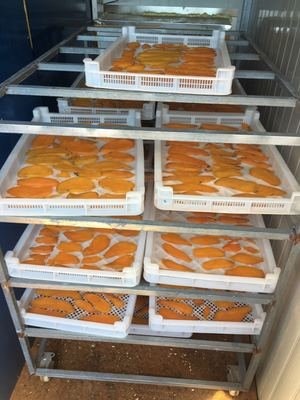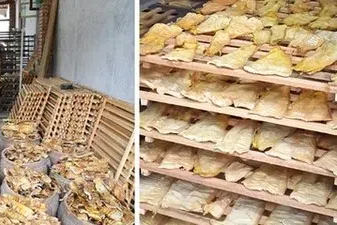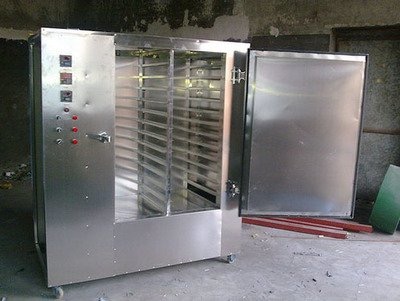
Content Menu
● Understanding Heat Pump Ventless Dryers
● Energy Efficiency
● Cost Savings
● Versatility in Food Drying
● Environmental Benefits
● User-Friendly Operation
● Case Studies: Successful Implementation
>> Case Study 1: Fruit Processing Plant
>> Case Study 2: Vegetable Dehydration Facility
>> Case Study 3: Herb Drying Operation
● Future Trends in Food Drying Technology
● Conclusion
● Frequently Asked Questions
>> 1. What is a heat pump ventless dryer?
>> 2. How do heat pump dryers save energy?
>> 3. Can heat pump ventless dryers be used for all types of food?
>> 4. What are the maintenance requirements for heat pump dryers?
>> 5. How do heat pump dryers improve product quality?
In the world of food processing, the efficiency of drying methods plays a crucial role in maintaining the quality and safety of food products. Among the various drying technologies available, heat pump ventless dryers have emerged as a popular choice for food manufacturers. This article explores how these innovative machines save energy and money while providing an effective solution for food drying.

Understanding Heat Pump Ventless Dryers
Heat pump ventless dryers utilize a unique technology that allows them to dry food products without the need for external venting. Unlike traditional dryers that expel hot air outside, heat pump dryers recycle the air within the system. This process not only conserves energy but also ensures that the drying environment remains consistent, which is essential for achieving optimal drying results.
Energy Efficiency
One of the most significant advantages of heat pump ventless dryers is their energy efficiency. These dryers operate at lower temperatures compared to conventional dryers, which means they consume less energy. The heat pump system extracts moisture from the food and uses it to heat the air that circulates within the dryer. This closed-loop system minimizes energy loss and reduces overall energy consumption.
For food manufacturers, this translates into lower utility bills and a reduced carbon footprint. By investing in energy-efficient drying technology, companies can significantly cut their operational costs while contributing to environmental sustainability.
Cost Savings
In addition to energy savings, heat pump ventless dryers offer several cost-saving benefits for food manufacturers:
1. Reduced Maintenance Costs: Traditional dryers often require extensive maintenance due to their complex systems and the wear and tear associated with high-temperature operations. Heat pump dryers, on the other hand, have fewer moving parts and operate at lower temperatures, leading to reduced maintenance needs and costs.
2. Longer Equipment Lifespan: The gentle drying process of heat pump dryers helps preserve the integrity of the equipment. As a result, manufacturers can expect a longer lifespan for their drying machines, further enhancing their return on investment.
3. Improved Product Quality: Heat pump ventless dryers provide a consistent drying environment, which is crucial for maintaining the quality of food products. By preventing overheating and ensuring even moisture removal, these dryers help preserve the flavor, color, and nutritional value of the food. Higher quality products can command better prices in the market, leading to increased revenue for manufacturers.

Versatility in Food Drying
Heat pump ventless dryers are versatile and can be used for a wide range of food products, including fruits, vegetables, herbs, and meats. This adaptability makes them an excellent choice for food manufacturers looking to diversify their product offerings.
For instance, a manufacturer can use the same dryer to process apples, tomatoes, and herbs without the need for extensive reconfiguration. This flexibility not only saves time but also reduces the need for multiple drying machines, further cutting costs.
Environmental Benefits
The environmental impact of food processing is a growing concern, and heat pump ventless dryers address this issue effectively. By using less energy and producing fewer emissions, these dryers contribute to a more sustainable food processing industry. Additionally, the ability to recycle air within the system means that less heat is wasted, making the drying process more environmentally friendly.
User-Friendly Operation
Modern heat pump ventless dryers are designed with user-friendliness in mind. Many models come equipped with advanced control systems that allow operators to set precise drying parameters. This level of control ensures that food products are dried to the desired moisture content without the risk of over-drying or under-drying.
Moreover, the automation features in these dryers can streamline the drying process, reducing the need for constant monitoring and manual intervention. This not only saves labor costs but also enhances overall productivity in the food processing facility.
Case Studies: Successful Implementation
To illustrate the effectiveness of heat pump ventless dryers, let’s look at a few case studies from food manufacturers who have successfully integrated this technology into their operations.
Case Study 1: Fruit Processing Plant
A fruit processing plant that specializes in dried fruits decided to replace its traditional drying system with heat pump ventless dryers. The transition resulted in a 30% reduction in energy costs and improved product quality. The consistent drying environment allowed the plant to produce dried fruits with vibrant colors and enhanced flavors, leading to increased customer satisfaction and repeat business.
Case Study 2: Vegetable Dehydration Facility
A vegetable dehydration facility faced challenges with uneven drying and high energy consumption. After switching to heat pump ventless dryers, the facility reported a significant improvement in drying efficiency. The ability to dry various vegetables in the same machine without flavor transfer was a game-changer. Additionally, the facility reduced its carbon footprint, aligning with its sustainability goals.
Case Study 3: Herb Drying Operation
An herb drying operation that relied on traditional methods struggled with high operational costs and inconsistent product quality. By adopting heat pump ventless dryers, the operation not only cut energy costs by 25% but also improved the potency and aroma of the dried herbs. The precise control over drying conditions allowed for better preservation of essential oils, resulting in a premium product that commanded higher market prices.
Future Trends in Food Drying Technology
As technology continues to evolve, the future of food drying looks promising. Innovations in heat pump technology are expected to enhance the efficiency and effectiveness of ventless dryers even further. Some potential trends include:
1. Smart Technology Integration: The incorporation of IoT (Internet of Things) technology will allow for remote monitoring and control of drying processes. This will enable manufacturers to optimize operations in real-time and reduce downtime.
2. Advanced Materials: The development of new materials for dryer construction may improve insulation and heat retention, further enhancing energy efficiency.
3. Sustainability Focus: As consumers become more environmentally conscious, manufacturers will increasingly seek sustainable drying solutions. Heat pump ventless dryers align perfectly with this trend, offering a greener alternative to traditional methods.
4. Customization Options: Manufacturers may offer more customizable solutions to meet the specific needs of different food products, allowing for tailored drying processes that maximize quality and efficiency.
Conclusion
Heat pump ventless dryers represent a significant advancement in food drying technology. Their energy efficiency, cost-saving benefits, versatility, and environmental advantages make them an ideal choice for food manufacturers. By investing in these innovative machines, companies can improve their operational efficiency, reduce costs, and produce high-quality food products that meet consumer demands.
As the food processing industry continues to evolve, the adoption of heat pump ventless dryers will likely increase, paving the way for a more sustainable and efficient future.

Frequently Asked Questions
1. What is a heat pump ventless dryer?
A heat pump ventless dryer is a drying machine that uses a closed-loop system to recycle air and moisture, allowing for efficient drying without the need for external venting.
2. How do heat pump dryers save energy?
Heat pump dryers operate at lower temperatures and recycle air, which reduces energy consumption compared to traditional dryers.
3. Can heat pump ventless dryers be used for all types of food?
Yes, heat pump ventless dryers are versatile and can effectively dry a wide range of food products, including fruits, vegetables, and meats.
4. What are the maintenance requirements for heat pump dryers?
Heat pump dryers generally require less maintenance than traditional dryers due to their simpler design and lower operating temperatures.
5. How do heat pump dryers improve product quality?
By providing a consistent drying environment and preventing overheating, heat pump dryers help preserve the flavor, color, and nutritional value of food products.












